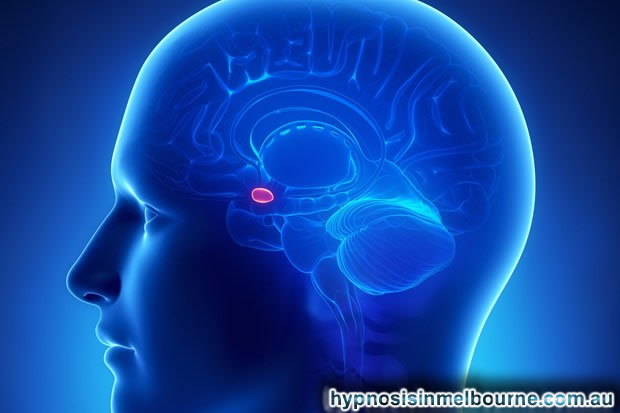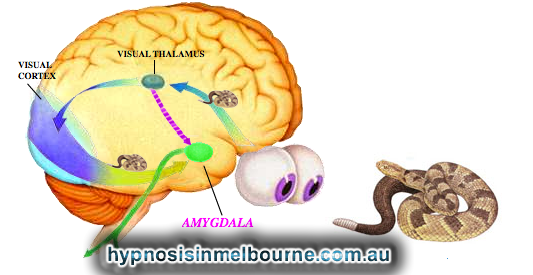Hypnosis Impacts the Amygdala
Recent research conducted on the brain shows that hypnosis gives a person the ability to control the amygdala. The amygdala is a section of the brain that involves emotion, creativity, and memory. Hypnosis promotes mind-body interaction of this area of the brain. These findings have many implications in psychology and medical research.
The amygdala is an almond sized structure in the brain. This structure has a lot to do with a person’s emotional state. Researchers are finding out that the amygdala also interacts with other parts of the brain such as the frontal cortical region and the hippocampus. Currently, researchers are studying a possible link between the amygdala and autism (Black, 2001).
The amygdala, the hippocampus, and the frontal cortical region all play a role on the body. They affect the immune system, the endocrine system, which includes the adrenal and the pituitary glands, which regulate hormones, and the autonomic nervous system that controls heart rate and blood pressure.
Under hypnosis, a person’s amygdala is turned down. A hypnotist or highly trained individual in self-hypnosis can relax the autonomic nervous system by using hypnosis. Turning off the amygdala disables a typical “fight, flight, or freeze” response and stops any emotional triggers that may occur. The good thing about turning off the amygdala is that it allows the body and the body’s immune system time to heal. This is why hypnosis has such a wide range of uses and therapeutic benefits (Frank and Mooney, 2002).
At the 54th Annual Conference of the Society for Clinical and Experimental Hypnosis, in 2003, Stanford researcher Dr. David Spiegel spoke about hypnosis and the brain. He said that although we do not fully understand how hypnosis interacts with the brain, we do know “that hypnosis can be effective in helping people reach into their own unconscious resources to solve problems normally beyond their ability. Not only does it work, but it often succeeds where modern medicine has failed” (Warren, 2009).
Warren explains how hypnosis affects the amygdala. When someone is in a hypnotic trance the amygdala normally shuts itself off. Both the body and the mind are in a deep state of relaxation. All emotions and fears are shut down. The patient is reminded that he or she is in control and not the hypnotherapist. In a state of hypnosis, a person’s unconscious mind will know where to channel the healing power of hypnotic suggestions. This new research gives more insight into the mind-body connection between the brain and hypnosis.


